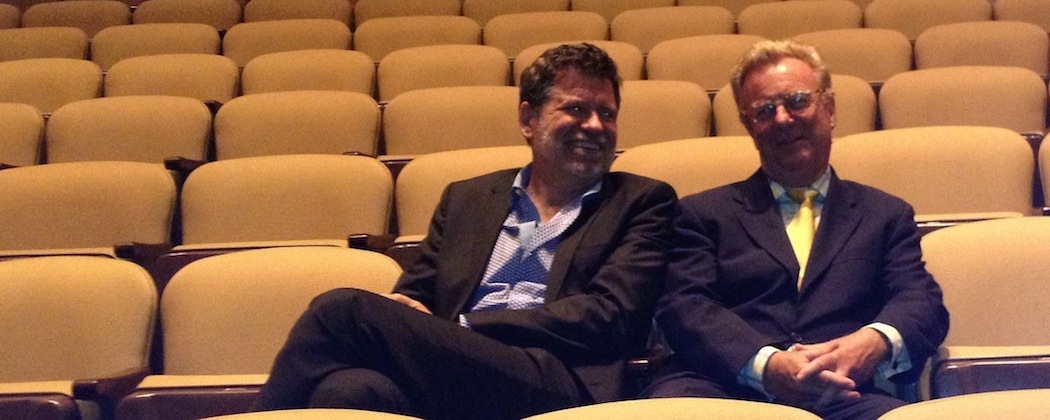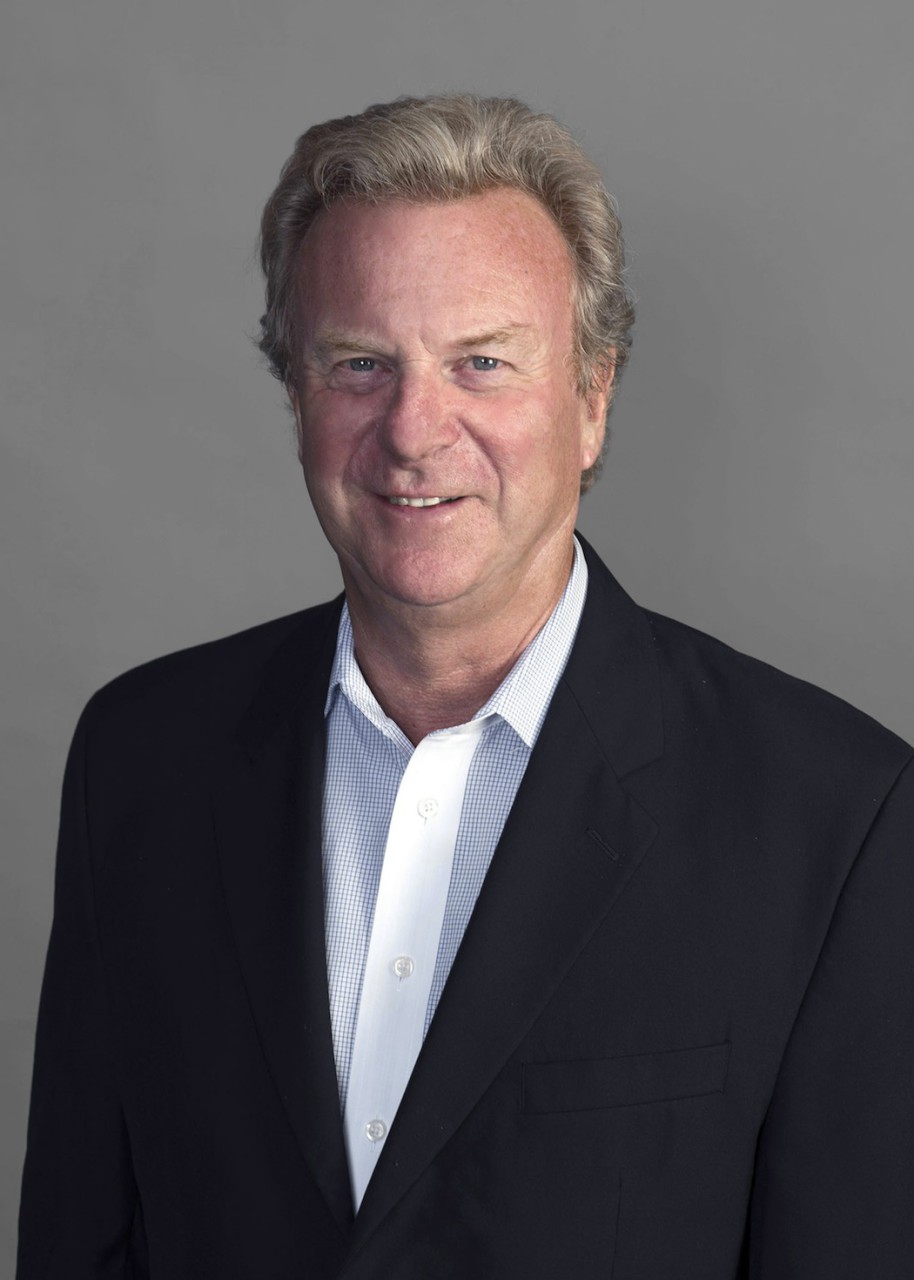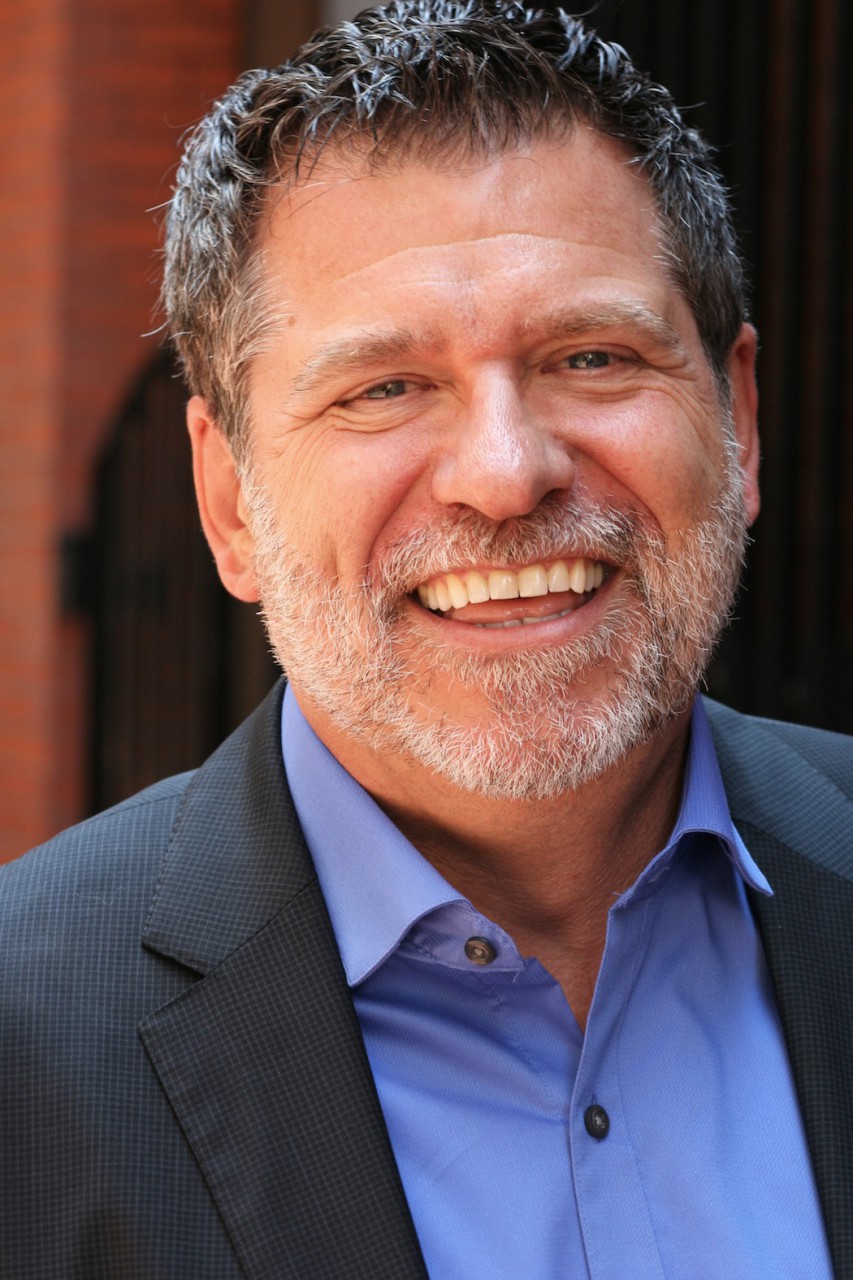Advertisement
David Dower Will Head ArtsEmerson; Rob Orchard Stays On Board

Rob Orchard and David Dower have had one of the more fruitful relationships in Boston theater, Orchard as executive director of ArtsEmerson: The World on Stage and Dower as his director of artistic programs. The two men stress that close collaboration will continue in January when Dower assumes leadership of ArtsEmerson and Orchard, 67, cuts back to become “Founder and Creative Consultant,” while spending about a third of his time on ArtsEmerson projects.
The two men have been involved with some of the best theater in Boston since 2010, when ArtsEmerson unveiled its programming. Orchard, the founding managing director of the American Repertory Theater (originally under Robert Brustein), has brought one great theater-dance-multimedia company after another into Boston, many sharing the old A.R.T. aesthetic of favoring bold, stylized productions over kitchen-sink realism. They've included everything from imaginative stagings of classics, such as “Mies Julie” set in South Africa and a contemporary “Merchant of Venice” with a great performance by F. Murray Abraham, to contemporary works by emerging US companies, like the Builders’ Association’s “Sontag: Reborn” and the upcoming “The Old Man and the Old Moon” by PigPen Theatre Company.
“From the very start, I wanted to fill voids,” said Orchard. “I wanted to add choices, amplify the cultural opportunities for the community. With that in mind, I saw Boston wasn’t on the international theater circuit, and it should be.”

Orchard’s ArtsEmerson aesthetic was broader than at the A.R.T., as evidenced not only by some of the family programming and overtly political productions, but by his decision to bring Dower into the mix 2 ½ years ago and begin grooming him, it seems, to be his successor. Dower shares Orchard’s aesthetic, but has been a strong advocate for more community involvement, in both outreach and audience participation at ArtsEmerson.
And Orchard isn’t the same person he was at A.R.T. “I didn’t feel this way when I was younger, but I really think that theater makes a difference in people’s lives. It’s not social engineering, it’s not PC. We use words, there’s a way for theater to open up the conversation rather than close it down. I want to do that. I know it works. And David is the enabler of that. I can be cheering on the sidelines.”
Dower picked up on that in a separate interview: “If we weren’t focusing on the audience, we would just be competing with other theater companies. Our role is to serve the audiences in the gaps. Global diversity onstage and local diversity in the audience.
Advertisement

“When you focus on this notion of citizenship or stewardship or diversity, there starts to be a nervousness among theater people about what happens to excellence. Is this theater as social work? Did artistic excellence go out the window?” Dower counters that ArtsEmerson has shown that it’s not an either-or proposition when it comes to engagement and excellence: “There is plenty of work in the world that moves these conversations, that are able to do both.”
And it can be classic theater as well as contemporary theater: “I don’t think a play lasts if there’s not something in it that has greatness for our time. If the audience starts to learn to come because this evening is going to bounce off my life, we can find it in anything.”
The diversity of the audience is part of that bouncing off as well. Both men pointed to Company One, whom they collaborated with on “We Are Proud to Present a Presentation About the Herero of Namibia, Formerly Known as Southwest Africa, From the German Sudwestafrika, Between the Years 1884-1915,” an excellent production about racial attitudes, as evidence of a company where the audience is part of the draw.
“They are like a brother to us in what they do and how they connect with the community,” said Orchard. “I was at their benefit last week, and I looked out at the people there and it was the city of Boston in that room. I’ve never seen that before in an arts organization.”
Dower pointed to the four basic tracks of ArtsEmerson — “Rob’s original recipe” — that brought him to ArtsEmerson and that he plans to continue: “That it be generative in spirit, international in scope, additive to the cultural landscape in Boston, and you’d be working in long arcs with artists so they’d come back again.”
Lee Pelton, president of Emerson, sent out an email to the Emerson community saying, “As the founding Executive Director of ArtsEmerson, Rob has created an enduring and vibrant cultural juggernaut for the City of Boston and Emerson College, having brought extraordinary productions to Boston from around the world, which we would otherwise not have had the opportunity to experience.”
As for the future, Orchard said, “I’ve carved out a third of my time to continue working for ArtsEmerson, projects in my planning pipeline that I’ll continue working on.” He’ll also be doing fundraising as well as more fun stuff, such as traveling around the world, scouting and poking around for future productions. “I’ve never been to South Africa, and it would be good to connect to companies we have relationships with on their turf.”
Looking to future programming, “We’re going to originate more work, in partnership with others. There are a number of projects that have been in the pipeline, a Robert Wilson project, a Don DeLillo play about the financial crisis. You will not find me taking on the leadership of any other arts organization. I’m not going to answer the phone for six months.”
Both Orchard and Dower saluted Emerson’s commitment to their program, as well as its contribution to the development of lower Washington Street. All of which, says Dower, has been part of the synchronicity of the program.
“What Rob brought with him, after his work with two regional theaters [Yale Repertory Theatre as well as A.R.T.], was to put learning into something fresh and new and different and establish a set of priorities on behalf of the field, on behalf of the city, on behalf of the college.”



